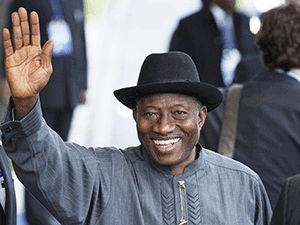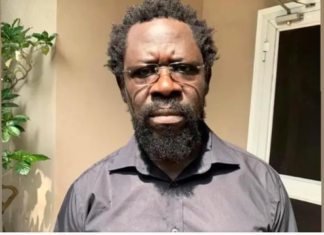A new Nigeria is possible, but leaders and followers will have to make it work, write ISHAYA IBRAHIM and SAM NWOKORO
Not many Nigerians believe that a new Nigeria is possible. But some do, including TheNiche, which necessitated a well-attended public lecture on August 16 at Eko Hotel, Lagos.
Notwithstanding the speeches on how to build a new Nigeria devoid of corruption, insecurity and infrastructure deficit, the facts on the ground still point to a state of despondency, sparked off largely by the activities of Boko Haram.
The Boko Haram carnage has notched up the casualty figures to 2,053 civilians in six months, reports Human Rights Watch (HRW). This has reinforced the terrorist group’s determination for a territorial conquest, like its counterpart in Iraq, the Islamic State of Iraq and the Levant (ISIL), formerly known as ISIS.
ISIL has captured a string of Iraqi towns and parts of Syria which it renamed ‘The Islamic State (IS)’. Boko Haram has equally made similar attempt on Borno towns – Qwoza and Damboa. Though Nigerian troops have recaptured the areas, the terrorists are still in control of the Sambisa forest, a stretch of 6,000km2.
But insecurity is just an aspect of Nigeria’s many troubles. The problem of corruption has affected all sectors of the country’s national life – health, electricity, education and even the family.
It is possible, but…
Dr. Tunde Oseni, lecturer at the Department of Politics and International Relations, Lead City University, Ibadan, believes that a new Nigeria is possible.
“I believe strongly that a new Nigeria is possible. But certain things must be in place. This will include sincerity on the part of the leaders and followers as well. And there must be some kind of ethical revolution. Until the majority of Nigerians are mobilised ethically towards a better society, things will not change. But we should not be pessimistic. We should work towards a new Nigeria where every Nigerian will be proud to be a citizen,” he said.
His optimism notwithstanding, he thinks that the current state of affairs in the country is a cause for alarm.
“That alarm can be reset by leaders and followers alike. Insecurity, corruption and infrastructure backwardness are the three major problems that we have.
“And these are human problems. Insecurity can be solved with the right political will. Corruption can also be solved by the right political will, just like you can also solve the problem of infrastructural deficit with the right political will. So, if we have the right leadership, we can come out of our problems. These problems are not unique to Nigeria.”
Ogubundu Nwadike, an author, published a book on his optimism of a new Nigeria which he titled Nigeria: Worth Dying For.
On the reason he wrote the book, he said: “The big countries that you are seeing today have passed through virtually all that Nigeria is passing through – corruption, bad leadership…. So, I think Nigeria is at a stage. Like I stated in my book, our today is better than our yesterday. Our 2014 is better than our 1914. Our 2014 is better than our 1960. Nigeria is more of Nigeria now than it was 100 years ago.”
He added: “There is a generational awakening among younger generation of Nigerians in virtually key facets of our society – politically, economically and socially. There is this novel inspiration and motivation being exhibited by the new generation.”
Shoring up Nigeria’s foreign image
On the international scene, the administration of President Goodluck Jonathan has been shoring up Nigeria’s image. Between August 4 and 6, he attended the African Leaders Summit convened by President Barack Obama of the United States.
The meeting discussed the economic and political affairs of African countries.
Jonathan used the opportunity of the meeting to meet investors in the U.S. and assured them that the challenge posed by Boko Haram could not pose a threat to the country’s business climate.
The president later had a parley with Nigerians in the Diaspora. He briefed them on the policies and programmes of his government which he said have been putting the country on the fast track of development.
On July 31, Nigeria and Ghana went a step further to cement their camaraderie, particularly with regard to increasing investments and trading in both countries. A programme tagged ‘Doing Business in Ghana’ was organised in Lagos.
The event, which was facilitated by the Ghana-Nigeria Business Council, was primarily a sensitisation programme aimed at proffering ideas on how industries and governments can boost trade between Nigeria and Ghana as well as in the entire West Africa region.
It was also meant to encourage partnership and co-operation of private sector organisations among other things.
The event was the culmination of series of efforts by the Nigerian High Commissioner to Ghana, Ambassador Ademola Onafowokan, and Lagos Chamber of Commerce and Industry (LCII). The bilateral relationship between the two countries was aimed at boosting trade flow.
Confab to the rescue
The recently convoked national conference recommended some things to be done to radically alter the present constitution of the country, if a new Nigeria is to be realised. What the delegates recommended include the following:
New states – A new landmark will be noticed in any new Nigeria constitution because the confab unanimously voted for an additional state for the South East political zone of the country, to bring it at par with others, while at the same time acceding to the demand of other groups who want states out of their existing states.
Electoral matters – For the first time, according to some of the adopted recommendations, an independent person is free to contest for any elective post at the nomination of up to 50 persons from his ward, unlike the current system where only political parties bring forth candidates for election.
In an envisaged new constitution, electoral offenders and those public office aspirants convicted of corruption will be barred from contesting for public office for 15 years. Also, ballot papers are to be counted at polling booths after election and result publicly announced. The success of this recommendation was tested at the recently conducted elections in Ekiti and Osun states with remarkable success.
A human rights activist with the Civil Liberties Organisation (CLO), Uche Ezeukwu, said: “The measure is most welcome because it will serve as a gauge against electing corrupt leaders.”
Derivation – Debate is still on-going on whether to retain the 13 per cent derivation to oil-producing areas or jack it up. The issue has polarised delegates at the confab. While Northern delegates insist on retaining the status quo, delegates from the South South want an increased allocation. This debate created a stalemate.
Regional realignment – Though the confab did not categorically recommend balkanisation of the country, it gave a salient recommendation that states or regions that wish to come together to form a group of states for their own administration should be encouraged. This has led many to interpret the suggestion that the confab had quietly endorsed restructuring the country along the present geo-political lines without expressly saying so.
Bakassi resettlement welfare fund – A new constitution for Nigeria may very likely contain clauses for dealing with political and refugees’ fall-out of the sort that came out following the Green Tree Agreement (GTA) that ceded Bakassi (in Cross River State) to Cameroon in 2000. There was unanimous adoption of an arrangement for government to set a Bakassi Welfare Resettlement Fund to deal with the Bakassi issue and similar ones in future.
Maritime corps – The establishment of a marine corps for effective policing of Nigerian waters is likely to make inroad into a new constitution because the confab unanimously agreed that the spectre of terrorism in the country today requires serious policing of all Nigeria’s entry and exit points.
State police – The establishment of state police is likely to be adopted into any new constitution because there seemed to be a consensus among Nigerians and the confab delegates that the present police structure does not make for an efficient police force to cope with increasing lawlessness in the country today.
Separate border police – A separate border police for policing Nigeria’s estimated 150 porous borders has long been advocated, and the confab members deliberated on this and unanimously endorsed it.
Corruption court – A new constitution will likely endorse the establishment of a corruption court. The confab almost closed deal on this while it was about to vacate. This clamour has been long because it is being argued that the volume of corruption cases before the conventional courts today hinder quick disposal of cases and diligent prosecution because of myriad factors. A corruption court so envisaged by the confab will be headed by a retired chief judge and will be endorsed by the parliament. There are a lot. But these are the major ones likely to make it in any new constitution.
The late renowned author, Chinua Achebe, said in his book, There was a country: “Having grand ideas was fine, but their execution required a strong leader. And clearly, Nigeria’s principal problem is identifying and putting in place that elusive leader.












